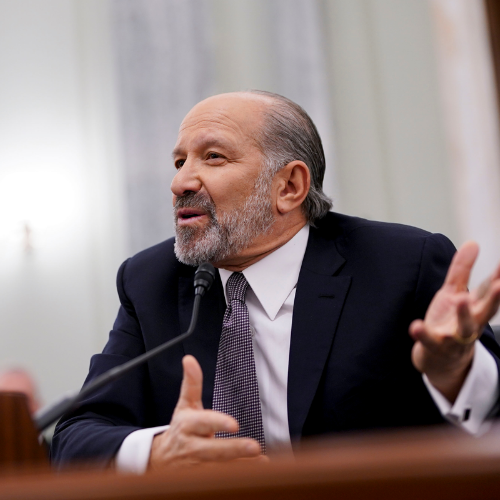In a recent statement to a New York court, US Commerce Secretary Howard Lutnick defended the use of tariffs, calling them a crucial tool for maintaining peace and security around the world. Lutnick explained that these tariffs are more than just about protecting the economy—they also help the president carry out important diplomatic efforts during times of crisis.
Lutnick argued that if the president loses the power to impose tariffs quickly, it could hurt the United States’ ability to influence international events. He said that maintaining these tariffs is key to the president’s ability to conduct “real-world diplomacy,” meaning making deals and agreements that can prevent conflict.
This statement came as part of a court case reviewing whether President Donald Trump’s use of tariffs earlier this year was legal. A three-judge panel recently ruled that the global tariffs announced by Trump were “contrary to law.” Lutnick’s submission to the court emphasized that these tariffs serve a bigger purpose, especially in keeping peace between nations that might otherwise go to war.
Japan’s $6.3 Billion Move to Protect Economy from U.S. Tariffs
The India-Pakistan Ceasefire: A Critical Moment
One example Lutnick used to explain the importance of tariffs involved the tense situation between India and Pakistan. These two neighboring countries, both armed with nuclear weapons, had been involved in serious fighting earlier this year.
On April 22, a terrorist attack in the Indian region of Jammu and Kashmir killed 26 civilians. In response, India launched Operation Sindoor, targeting terror infrastructure across the border in Pakistan and Pakistan-occupied Kashmir. For four days, both countries exchanged drone and missile strikes, escalating the conflict dangerously.
The fighting stopped on May 10 when India and Pakistan reached a “tenuous ceasefire,” meaning a fragile agreement to pause hostilities. According to Lutnick, this ceasefire was only possible because President Trump stepped in and offered both countries better trading access with the United States if they agreed to end the conflict.
He warned that if the president’s power to use tariffs is weakened, it could cause India and Pakistan to question the US offer, which might threaten peace and security in the region. He said millions of lives could be at risk if the ceasefire falls apart.
Tariff Trouble Grows as 12 States Challenge Trump’s Move
However, Indian government sources maintained that no third party, including the United States, was involved in reaching the ceasefire. They said the understanding between India and Pakistan was reached directly between the two countries.
Tariffs as Tools for National Security and Diplomacy
Howard Lutnick further explained that President Trump used emergency powers under the International Emergency Economic Powers Act (IEEPA) to impose the tariffs. This law allows the president to take swift action to protect national security and the economy during urgent situations.
In early April, President Trump announced sweeping tariffs on several countries, including India and China. A week later, he announced a 90-day suspension of these tariffs—except for those on China and Hong Kong—to allow time for trade negotiations.
Lutnick argued that if the courts limit the president’s ability to impose tariffs, it could undermine diplomatic efforts that rely on trade offers as incentives. For example, if India and Pakistan doubt the US president’s ability to deliver promised trading benefits, it could weaken peace talks or ceasefires.
The Commerce Secretary warned that an adverse court ruling could cause other countries to question the US’s reliability in international agreements, possibly leading to increased tensions and risks to global security.


